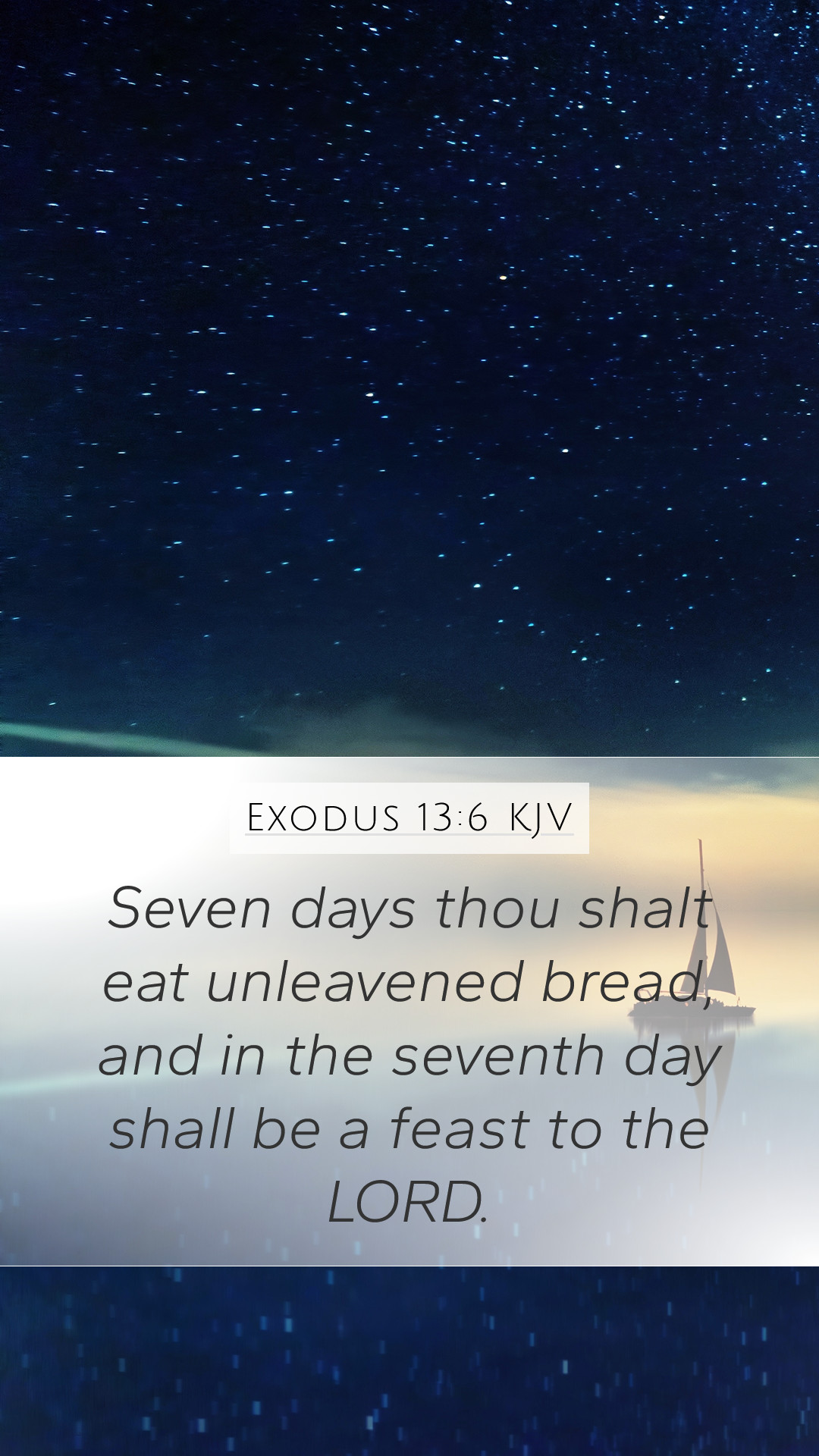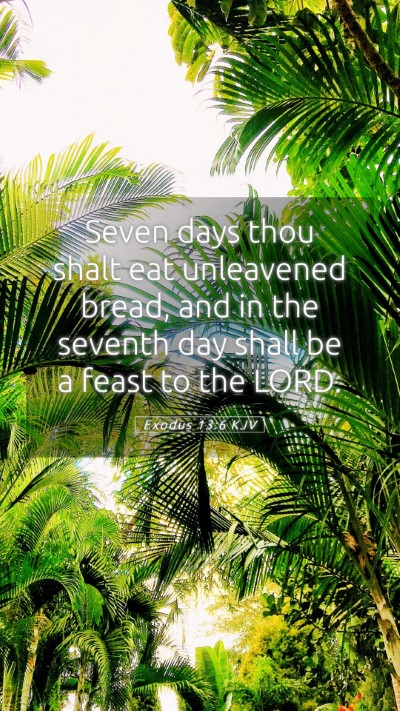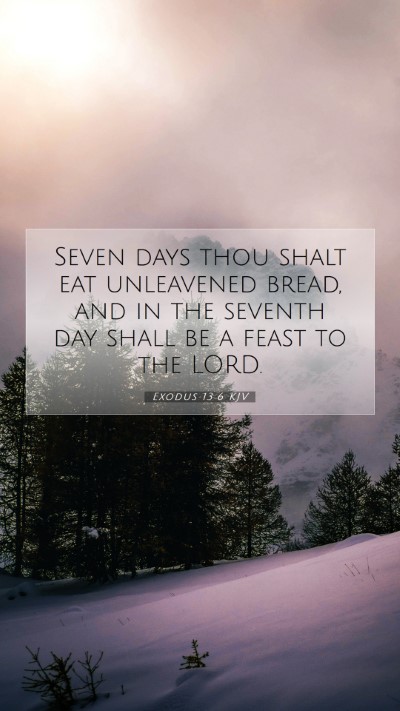Understanding Exodus 13:6
Bible Verse: Exodus 13:6 states, "Seven days you shall eat unleavened bread, and on the seventh day, there shall be a feast to the Lord."
Bible Verse Commentary
Introduction
Exodus 13:6 marks a significant part of Israel's deliverance from Egypt and serves as an important element in the celebration of Passover. This verse highlights the observance of the Feast of Unleavened Bread, reflecting the need for purity and sacredness in the worship of God.
Exegesis of Exodus 13:6
The verse commands the Israelites to eat unleavened bread for seven days, culminating in a feast on the seventh day, which is dedicated to the Lord. This command has multiple layers of meaning:
-
Historical Significance:
As noted by Matthew Henry, this instruction commemorates God's deliverance during the Exodus. The consumption of unleavened bread reflects the hasty departure from Egypt, symbolizing the urgency of deliverance.
-
Spiritual Symbolism:
Albert Barnes elaborates that unleavened bread signifies purity and a lack of corruption. In a spiritual sense, leaven often represents sin, and thus eating unleavened bread serves as a reminder for the Israelites to lead lives free from sin the way the bread is free from leaven.
-
Festivity and Worship:
According to Adam Clarke, the seventh day feast underlines the importance of keeping a day aside for holy celebration and worship to acknowledge God's acts of salvation. This command leads to joyful remembrance and congregational unity.
Principles of Application
The celebration mandated in Exodus 13:6 extends beyond the ancient context and poses several applications for modern believers:
-
The Call to Remember:
In our Bible studies, we find that recalling God's faithfulness in our lives is fundamental to maintaining faith and gratitude. The observance of the Feast of Unleavened Bread can be mirrored in contemporary practices of communion and remembering Christ's sacrifice.
-
Purification and Holiness:
The principle of purging 'leaven' from our lives can lead to significant personal transformation. It encourages believers to examine their lives regularly to remove sin and promote spiritual growth and holiness.
-
Community in Worship:
The emphasis on gathering for the feast reinforces the necessity of community in our faith. Believers are encouraged to engage in communal worship experiences, reflecting the unity found in collective remembrance of God's goodness.
Related Bible Cross References
- Exodus 12:15 - Significance of removing leaven.
- Matthew 26:17-30 - The Last Supper and Passover.
- 1 Corinthians 5:6-8 - New Testament perspective on leaven and purity.
Conclusion
Exodus 13:6 not only served as an instruction for Israel but also lays vital groundwork for understanding the importance of remembrance, purity, and community worship today. This verse enriches our Bible verse interpretations and illustrates the enduring significance of biblical mandates as tools for spiritual insight, leading to a deeper understanding of Scripture.


